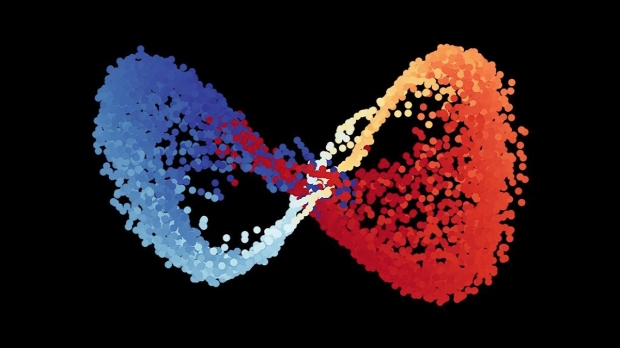A study on the physics discovery titled "Automated discovery of fundamental variables hidden in experimental data" has been published in the journal Nature Computational Science.
Researchers from Columbia Engineering have developed a new artificial intelligence (AI) program that could derive the fundamental variables of physics from video footage of physical phenomena. The program analyzed videos of systems like the swinging double pendulum, which researchers already know four "state variables" exist for; the angle and angular velocity of each arm. Within a few hours, the AI determined there were 4.7 variables at play.
"We thought this answer was close enough. Especially since all the AI had access to was raw video footage, without any knowledge of physics or geometry. But we wanted to know what the variables actually were, not just their number," said Hod Lipson, director of the Creative Machines Lab in the Department of Mechanical Engineering.
Two of the variables it identified correlated with the angles of each arm. However, the other two were unclear, as the program interprets and visualizes the variables differently from how humans intuitively understand them. Nevertheless, as the AI was making accurate predictions about the system, it is clear it managed to identify four valid variables. The researchers then tested the AI on systems we don't fully understand, like a lava lamp, and a fireplace, identifying 8 and 24 variables, respectively.
"I always wondered, if we ever met an intelligent alien race, would they have discovered the same physics laws as we have, or might they describe the universe in a different way? Perhaps some phenomena seem enigmatically complex because we are trying to understand them using the wrong set of variables. In the experiments, the number of variables was the same each time the AI restarted, but the specific variables were different each time. So yes, there are alternative ways to describe the universe and it is quite possible that our choices aren't perfect," said Lipson.
You can read more from the study here.



